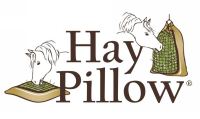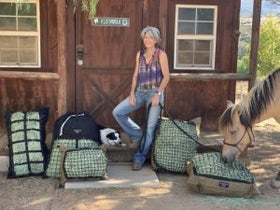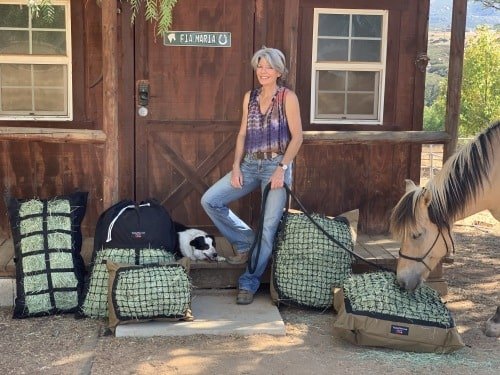Made in the USA...at What Cost?
Having completed the prototype process for my new product, I was excited to find wholesale suppliers to start production.

I contacted a large webbing manufacturer in New York. The sales representative was able to provide an immediate quote. Having the intention to buy American made products made from American threads, I asked if the webbing was made in the USA. He replied "it's imported". I asked for the price of domestic webbing, he put me on hold. Ten or more minutes later he returned with a quote that was 33% more. I asked why he did not have the prices readily available, he said customers call for the lowest prices and don't inquire where the webbing is made. My heart was heavy the rest of the week.
The more contacts I made to find suppliers of American made products; I realized how many U.S. companies employ workers abroad. Having contacted a company in Florida to get pricing for "Made in the USA" labels, I asked where they were made... China, ironic.
I made a fantastic netting contact, Frank in Tennessee. He contributed greatly to the prototype process, which required various mesh sizes not available to purchase in small quantities. He would find what he could and send it to me. Being grateful, I was prepared to place my initial large order with his company. The company used American twine but was manufactured in Taiwan. A netting company in Oregon was chosen.
The webbing supplier chosen in Los Angeles, has only imports in stock. When domestic webbing is ordered, it is a minimum of 1-3 weeks to be shipped. The demand is not high enough to keep it in on the shelves.
When purchasing a computer for the new business, an American company was chosen. In need of technical support, the experience was frustrating. It was located in India. I could not understand the person attempting to give me specific instructions. The phone calls lasted twice the amount of time they should have. I was paying by the hour.
How can this be? Companies A, B, C and D all manufacture the same or very similar product. They all employ US citizens and purchase domestic components. Company A, even though profitable, wants a larger share of the market. They start buying less expensive imported components to lower the price, gain a larger market share and increase their profit margin. Companies B, C and D are now struggling. The only way for them to compete is to buy imported products to level the playing field. Company A then decides to take it one step further and starts manufacturing abroad. Companies B, C and D are struggling again. The only way for them to compete is to manufacture abroad. Combined, the four companies had over 1,000 employees. Now they have 50.
This starts the domino effect. Initially when companies A, B, C and D bought domestic components, the component manufacturers had employees who bought cars, houses, purchased various insurance types, went to the movies, ate at restaurants, paid taxes, had pets etc. (use your imagination to expand this list, it could go on indefinitely). No longer employed, there is no expendable income. The same happens when companies A, B, C and D shut down their domestic manufacturing plants, more unemployed citizens, not paying taxes with no expendable income. When shopping, price is the only driving factor in the decision making process which perpetuates a vicious cycle.
In 2010, our manufacturing sector accounted for $1.7 trillion, or 11.7 percent of GDP (gross domestic product). While manufacturing's share of GDP declined from 28.3 percent in 1953 to a low of 11.2 percent in 2009.
Manufacturing is the key engine that drives American prosperity. Federal Reserve Chair Ben Bernanke said, on February 28, 2007, "I would say that our economy needs machines and new factories and new buildings and so forth in order for us to have a strong and growing economy." Similarly, in 2011 the Center for American Progress released a report entitled "The Importance and Promise of American Manufacturing: Why It Matters if We Make It in America and Where We Stand Today," by Michael Ettlinger and Kate Gordon. It asserts that:
Manufacturing is critically important to the American economy. For generations, the strength of our country rested on the power of our factory floors—both the machines and the men and women who worked them. We need manufacturing to continue to be bedrock of strength for generations to come.... The strength or weakness of American manufacturing carries implications for the entire economy, our national security, and the well-being of all Americans.
We as consumers need to be aware that when purchasing imported products, we are, to some degree condoning the lifestyle and treatment of the factory workers that made them. A business associate traveled abroad, all expenses paid to a factory he purchases large quantities from. He told me how beautiful and state of the art it was. Across the street were the poverty stricken ghettos the workers resided in.
Despite the rapid growth of the Chinese economy in the last decade, more than 482 million people in China – 36% of the population – live on less than $2 a day. There are approximately 150 million internal migrant workers in China who, because of their status, do not receive any state benefits or protection. They have to endure poor working conditions such as excessive and forced overtime, denial of social security rights and failure to provide employment contracts, as well as severe health risks.
The advantages of manufacturing in the USA? The quality of domestic components (more expensive than imported) creates and preserves a company's long term reputation; trading a smaller profit margin for longevity and eventual higher volume and market share. Shipping costs are drastically reduced. No import or custom fees. Supporting local businesses strengthens the communities in which we reside; the local printer in town is less expensive than a large internet printer abroad touted to be the "cheapest". Having a relationship with those we buy from and conduct business with creates loyalty which equates to long term.
The tenth amendment of the constitution states; The powers not delegated to the United States by the Constitution, nor prohibited by it to the states, are reserved to the states respectively, or to the people. I propose that we the people, the majority in a democratic, free enterprise society have the choice to purchase and support US made products and elect officials determined to rebuild our manufacturing sector. Collectively responsible for paving the road to our countries economic future.
Sources:
- Sweatshops in China retrieved September 25, 2013, from: https://waronwant.org/sweatshops-china
- Nash-Hoff M. (2012) Can American Manufacturing Be Saved? : Why We Should and How We Can Washington, D.C.: Coalition for a Prosperous America https://www.savingusmanufacturing.com/excerpt.php (paragraphs 9,10 and 11)




